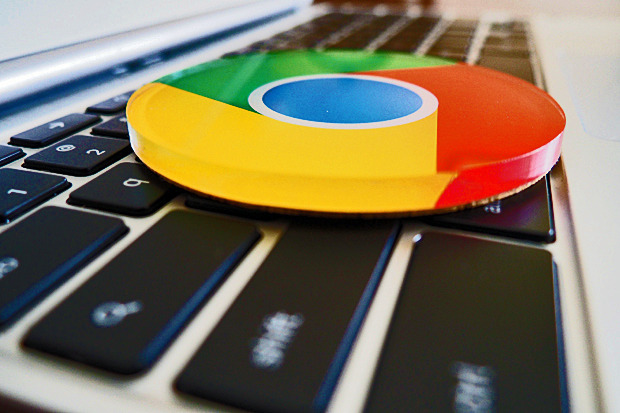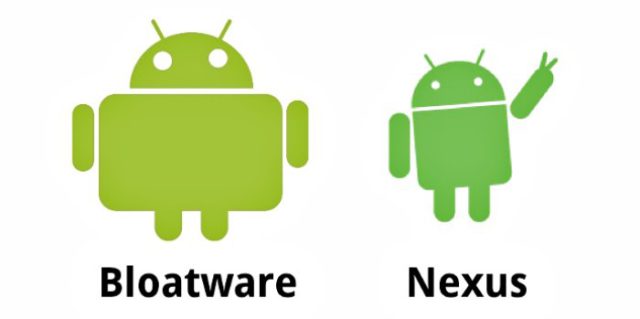An opinion diametrically opposite to that expressed in the previous Gazebo. Is the open source situation that bad?

Adrian Kingsley-Hughes, as part of his material on the ZDNet resource, shared an interesting perspective on Android, calling fragmentation the main problem of the OS. However, the very fact whether it is actually a problem depends on who this thesis is addressed to. Average users do not experience the inconvenience of fragmentation because Google solved the problem by separating the operating system and apps / services.
Users of even outdated versions Android can safely receive updates to Google services and applications. My 2012 Nexus 7 and Samsung Galaxy devices have the latest apps and games, including Netflix, Plex, YouTube and HBO Now. The version of applications on the mentioned devices is the same as on my new products – Pixel C and Nexus 6P. This situation casts a shadow over iOS, where the latest versions of apps are not available for comparatively older smartphones and tablets, making these devices less secure and less practical.
Kingsley-Hughes wonders what can be done to fix the problem and suggests that a possible solution would be to turn Android into a closed source system. I think this approach is wrong, about the reasons below.
Open source is a development model
People tend to misinterpret the concept of 'open source'. It refers to the software development model, not the way it is deployed to devices or the business model. Developing Android and 'rolling out' updates to devices are completely different things.
Open source provides zero fragmentation
Chrome OS is an open source operating system, as is Android. But from the beginning, Google used a different mechanism to 'deliver' updates to devices with Chrome OS. An approach with an intermediate image was used: two images of the operating system were installed on the device, one of which ensured the operation of the system, the second was simply 'in the background'. When an update was available, it replaced the inactive and outdated OS image. After rebooting, the device switched to the new version. Thus, the device always had the latest software version without any effort on the part of the user.

The same model is used by Core OS, a Linux based distribution for servers. The Chrome browser is based on open source, which is also updated. Mozilla Firefox and Thunderbird are updated in a similar way. With open source software, you can systematically upgrade your devices.
Proprietary software won't help
The belief about the magical ability of closed source software to cope with fragmentation also looks unjustified and unjustified. An example of the most proprietary software is Windows, fragmentation in the case of this OS is terrifying: Windows XP – 10%, Windows 7 – 49%, Windows 8 – 2.45%, Windows 8. 1 – 8%, Windows 10 – 19%. Worst of all, 95% of ATMs worldwide still operate at Windows XP, which is far from being safe. As for the fragmentation of Internet Explorer, everything is far from rosy here, despite the proprietary nature of the product. Even Apple, having full control over the hardware and software of their products, has difficulty updating iOS and macOS.
Chaos in Linux ..?
In his comparison of Android with Linux, the author put forward the following opinion:
.. Using the example Android, you can see in practice what chaos Linux would have turned into if it had enjoyed widespread popularity among hardware manufacturers. Someone somewhere must take control of the situation and put the interests of the platform above market share and profit …
The author will be surprised, but Linux is actually popular with hardware OEMs. Linux has significant weight in everything except PC versions. Nevertheless, the alignment of forces is gradually changing, as Chrome OS actively eats away a share from Microsoft. The popularity of Linux has reached the point that Microsoft developed an operating system based on Linux and designed to work with Azure. Let's not forget that the share of Linux -based computers for Azure has grown from 25 percent to 33 percent. So Linux is successfully developing even in the 'territory' Microsoft. Almost everything works on the base Linux: supercomputers, routers, printers, Comcast X1, Tesla, etc.
Despite the prevalence Linux in various industries and all the inconsistency of this fact in the opinion of Kingsley-Hughes, Linux it really would not hurt to put in order. Thanks to the open development model, the most active members of the kernel development community Linux continue to release patches for OS vulnerabilities, releasing an update every two months. You can still find systems based on outdated and unsupported versions Linux. In an interview with Greg Kroah-Hartman, Lead Kernel Developer Linux, he suggested that companies need to create a mechanism to support updating systems to the latest version. He also praised the upgrade path Chrome OS and Core OS.
Again, open source has nothing to do with software updates. Completely different areas.
 What is causing the fragmentation?
What is causing the fragmentation?
The root of the problem is the desire of OEMs to differentiate themselves from the competition by using their own themes and software. Telecom operators use a variety of pre-installed programs as an additional source of income. The process of updating such devices is slowed down: manufacturers and operators need to test their 'fuflosoft' for its stable operation with the new version Android. And since there is no financial incentive to upgrade to a new OS version, they postpone it. They make money from selling devices, not upgrading them. If there was a financial incentive, there would be timely updates. So if Google wants to end the fragmentation problem Android, then it needs to find a way to exclude these players from the update process, which is what Google is going to do.
You don't have to 'close' Android
Although Google has solved the problem of updating applications on devices with outdated software versions bypassing manufacturers and operators, the company is now working on an update method Android similar to that in Chrome OS. As part of the release of the new version Android of Nougat, the update will be downloaded to the device as soon as it becomes available, like the image in Chrome OS and after the system is restarted it will already work without a hitch.
Conclusion
Ultimately, the open source nature of the system is actually better 'suited' to solving the fragmentation problem than any proprietary software in the world. Before thinking about turning Android into such software, it is worth looking at the horror of fragmentation Windows and IE. Open source doesn't kill Android: The OS is thriving and continues to squeeze iOS and Windows.
Original material by Swapnil Bhartia
Quite adequate and well-founded counterargument. As we can see, the problem with versioning fragmentation Android is gradually smoothed out, and the problem does not cause such concern as before. New update mechanism? Well, why not, if it actually relieves Android of fragmentation and eliminates, then fans Android will only be in favor. I liked the passage about the pre-installed software, for some manufacturers the situation with such applications goes beyond all reason, and quite large players are guilty of this. So, two opinions about open source: which one is closer to you? Do you think fragmentation is still a pressing issue?
